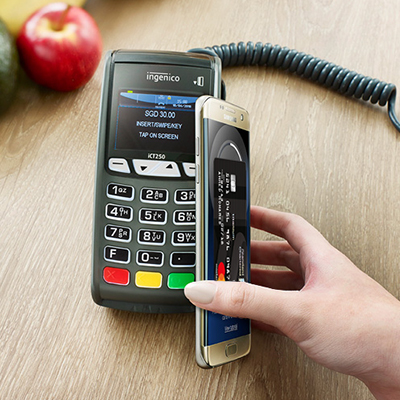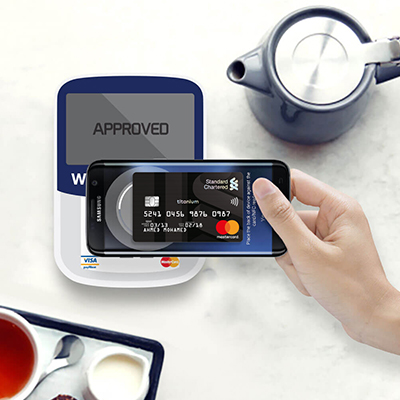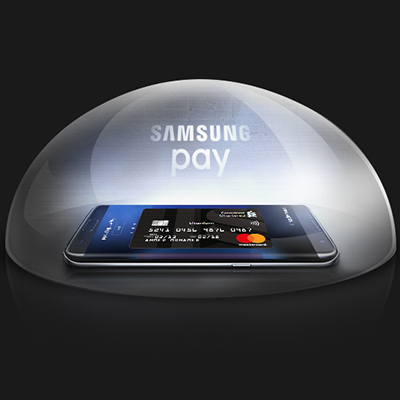




Samsung Pay is a secure and easy-to-use mobile payment service which can be used to make purchases with almost every retailer in the United Arab Emirates (UAE). It enables the use of both credit and debit cards by leveraging on a new proprietary technology called Magnetic Secure Transmission (MST) and Near Field Communication (NFC) to make mobile payments more accessible to both merchants and consumers.
Samsung Pay is a secure and easy-to-use mobile payment service which can be used to make purchases with almost every retailer in the United Arab Emirates (UAE). It enables the use of both credit and debit cards by leveraging on a new proprietary technology called Magnetic Secure Transmission (MST) and Near Field Communication (NFC) to make mobile payments more accessible to both merchants and consumers.
Launch the Samsung Pay app on your Samsung device and add your Standard Chartered Card(you can add both your credit and debit cards) by scanning it and authenticating with your fingerprint or 4-digit pin. Start making secure contactless transactions by hovering your device over the terminal to pay.
Samsung Pay supports the following Samsung devices: Galaxy S8, Galaxy S8+, Galaxy S7, Galaxy S7 edge, Galaxy S6 edge+, Galaxy Note5, Galaxy A5 (2016 / 2017), Galaxy A7 (2016 / 2017) , Galaxy A3 (2017) and Gear S3
All Standard Chartered Credit and Debit Cards can be registered on Samsung Pay
Samsung Pay offers a simple and convenient payment experience that is quicker than searching through your wallet or purse.
Once you upload your StanChart card onto Samsung Pay, your Samsung phone can be used at any store around the world where your card can be swiped or NFC is available.
Standard Chartered Bank does not control or endorse such websites, and is not responsible for their contents.
The use of such website is also subject to the terms of use and other terms and guidelines, if any, contained within each such website. In the event that any of the terms contained herein conflict with the terms of use or other terms and guidelines contained within any such website, then the terms of use and other terms and guidelines for such website shall prevail.